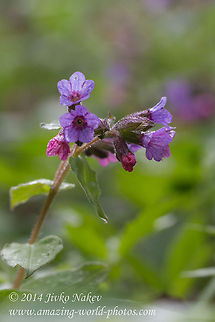
Appearance
The basal leaves are green, cordate, more or less elongated and pointed and always with rounded and often sharply defined white or pale green patches. The upper surface of the leaves has tiny bumps and it is quite hairy. The leaves of this host plant are eaten by the caterpillars of the moth ''Ethmia pusiella''. In spring, the plant produces small bunches of flowers. The 5-petals flowers are red or pink at first, later turn to blue-purple during the anthesis, by changing the pH value inside of the petals. As a matter of fact the flowers contain a dye that belongs to the anthocyanins and change the color from red to blue . ''Pulmonaria officinalis'' is diploid and has the chromosome number 2n = 14. Flowering period extends from March through May and the seeds ripen from May to June. Pollination is granted by insects - mainly bees, bumblebees and butterflies - the spread of seeds over ants.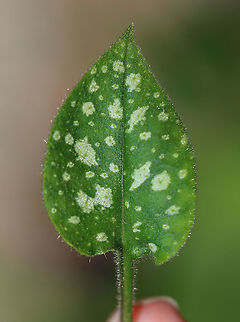
Naming
The genus name comes from the Latin ''Pulmoa'' meaning ''lung'' and was first used by Leonhart Fuchs , a German physician and one of the three founding fathers of botany. The species has been named ''officinalis'' by Carl Linnaeus for the medical properties of these plants, used since the Middle Ages to treat coughs and diseases of the chest, perhaps for its hard hairiness .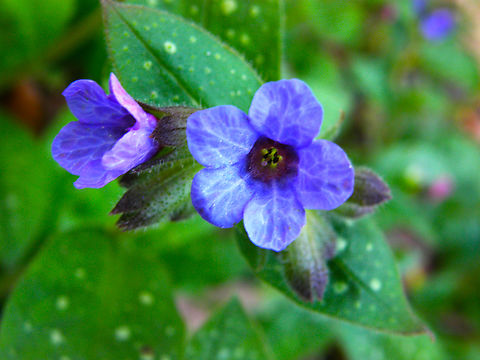
Distribution
This native species is perhaps the most widespread plant in Europe. It is distributed west in the Ardennes up to the Netherlands, Denmark and central Sweden. It is missing in Norway and it is only naturalized in the British Isles. It reaches central Russia and the Caucasus and it occurs in the Balkans and in northern to central Italy.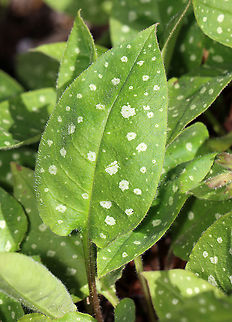
Habitat
It grows in deciduous and beech mixed forests from the lowlands to the mountains. It prefers fresh and shady areas, nutrient-rich and mostly calcareous, stony or pure clay loam soils, at an altitude of 0–1,500 metres above sea level.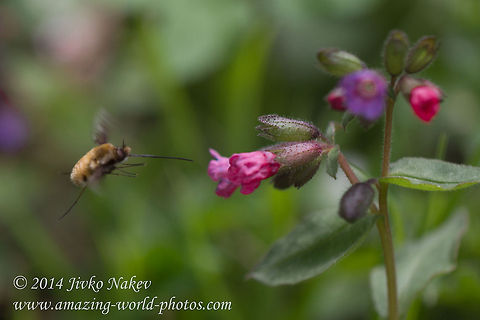
Uses
The plant has been cultivated for centuries as a medicinal herb, the ovate spotted leaves held to be representative of diseased lungs, following the Doctrine of Signatures. In fact it is useful in the treatment of chest diseases and asthma.References:
Some text fragments are auto parsed from Wikipedia.